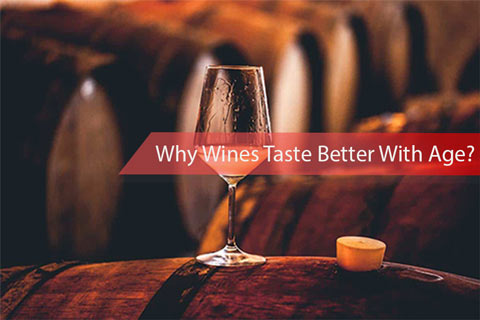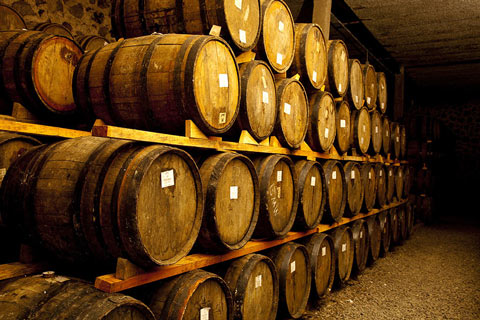
Why Wines Taste Better With Age

Humans have known about wine aging since the old days. A bottle of wine is like a closed system in which a lot of complex chemical reactions and transformations are taking place due to which wines taste better with age. In fact, tannin, sugar, alcohol and acidity are the most predominant factors in wine aging. Even the most novice of wine tasters can feel the difference between an old and a new wine by the excitement of their taste buds. With ages, this chemical reaction can affect the taste of wines giving them a pleasing flavor, and also changing the color and aroma of the spirit.
Tannins are a group of molecules that come from grape stems, seeds, and skins. They are present in all grapes and are generally produced by the plant as defensive compounds. Tannins have anti-fungal properties, but also make the unripe grape taste really nasty until the seed is mature. Not only do they taste bitter, but tannins also bind to the proteins that make your saliva slimy, stripping away the sliminess, and leaving your mouth feeling dry, ashen, and chalky.
But tannins aren't just salivary spoilsports. They're also indirectly responsible for the aroma of a wine. Tannins don't have any aromas themselves but react with the alcohols of wine and esters (acidic alcohols) to gradually subdue the flowery, fruity aromas of youth. They also combine with other molecules to help create the more complex and subtle smells characteristic of mature wines.

If we compare two glasses of wine, one with exceptionally young wine, and the other one with 10 years old wine, we will notice that the first glass produces a ripe berry scent and the first sip fills the entire mouth with bitterness and tartness, and when you swallow, your mouth feels slightly dry and chalky.
The second wine won’t smell anything like fresh, but instead, it will smell like leather and earth. You will still feel the fruitiness in it, but the taste is subtler, mixed up with chocolate and leather licorice. When swallowing, your mouth feels warm and fuzzy. The difference between a young version of wine and a properly aged wine can be clearly established no matter you are a wine pro or not.
The idea that wine always improves with age is not completely accurate -it is a common misconception. However, it is true that the flavor of certain wines becomes deeper and more complex with age, mainly due to what happens during their aging process.
A splendid selection of young and aged wines from local grape varieties can be found and ordered at the online wine shop Wines of Armenia.
 Deu
Deu  Fre
Fre  Rus
Rus  Ita
Ita